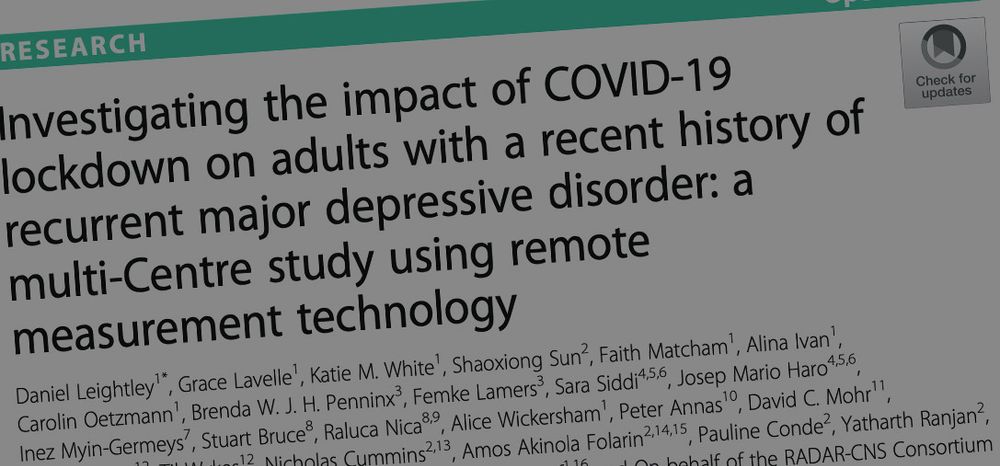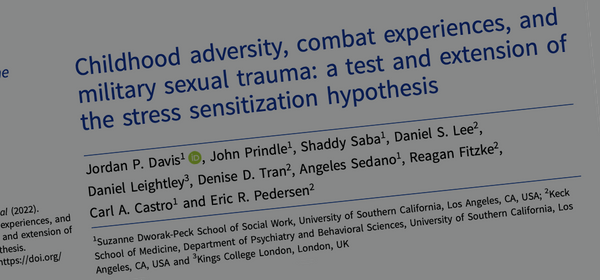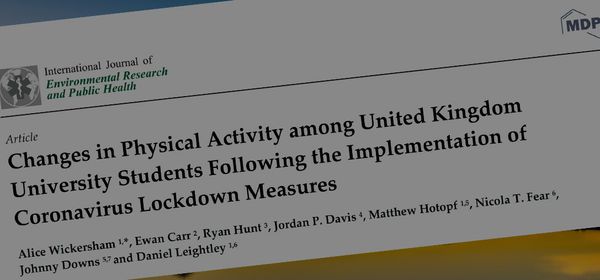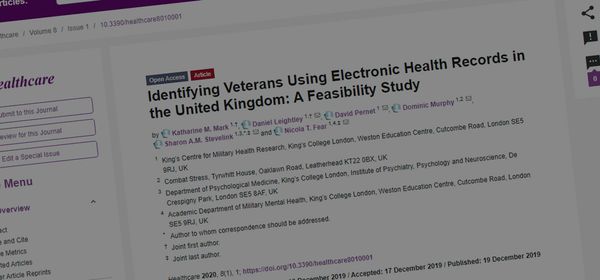Just Published: Investigating the impact of COVID-19 lockdown on adults with a recent history of recurrent major depressive disorder: a multi-Centre study using remote measurement technology
The research found changes in depressive symptoms and duration of sleep over the course of the first lockdown in the COVID-19 pandemic. Some of these symptoms varied according to whether participants were experiencing clinically relevant depressive symptoms shortly prior to the pandemic.
The outbreak of COVID-19 has had a major impact on mental health globally. Major depressive disorder (MDD) is a mood disorder that causes a persistent feeling of sadness and loss of interest and each year affects about 7% of people in Europe.Those diagnosed with MDD may be negatively impacted by the global pandemic due to social isolation, feelings of loneliness or lack of access to care.
To understand this better, RADAR-CNS researchers assessed the impact of the first lockdown in early 2020 in adults with a recent history of MDD across the United Kingdom, Spain, and The Netherlands.
The study used remote measurement technology to monitor MDD and sleep patterns. Over 250 participants completed self-reported questionnaires at regular intervals before, during and after the lockdown, and data on duration of sleep was collected using wearable devices. Using statistical analysis the researchers estimated the trajectories of depressive symptoms, self-esteem, and sleep duration over the lockdown period.
Change in sleep patterns
Nearly half the participants (48%) had clinically relevant depressive symptoms shortly before the pandemic but the study found no evidence that depressive symptoms or self-esteem changed between pre-, during- and post-lockdown periods. Results did show that average sleep duration (in minutes) decreased significantly coming out of the lockdown period.
The study also found that those experiencing clinically relevant depressive symptoms shortly before the pandemic showed a decrease in depressive symptoms, self-esteem, and sleep duration going into lockdown compared to those who were experiencing clinically relevant depression.
Value of remote measurement technology
The study demonstrates the utility of remote measurement technology and wearablesto evaluate the impact of Covid−19. First author on the study Dr Daniel Leightley Research Fellow at the Institute of Psychiatry, Psychology & Neuroscience, King’s College London said: “The potential to gather high-frequency information via wearable technology and smartphones in the RADAR-CNS project has advantages over momentary data capture currently employed in a clinical setting, which often presents in the form of infrequent questionnaires.” The study also used remote measurement technology to monitor sleep, without the need for active participant engagement, which allowed the longitudinal assessment of more objectively collected outcomes.
“The results of this work enhance our understanding of the impact of lockdown for those with major depression by monitoring through remote measurement technology. Interestingly the results of the study suggest that those with MDD do not experience a significant worsening in symptoms during the first months of the lockdown and there is a need for further research to understand why this might be and what protective factors might be present.”
Read the paper here: Leightley, D., Lavelle, G., White, K.M. et al. Investigating the impact of COVID-19 lockdown on adults with a recent history of recurrent major depressive disorder: a multi-Centre study using remote measurement technology. BMC Psychiatry 21, 435 (2021). https://doi.org/10.1186/s12888-021-03434-5
Republished from RADAR-CNS.org.



